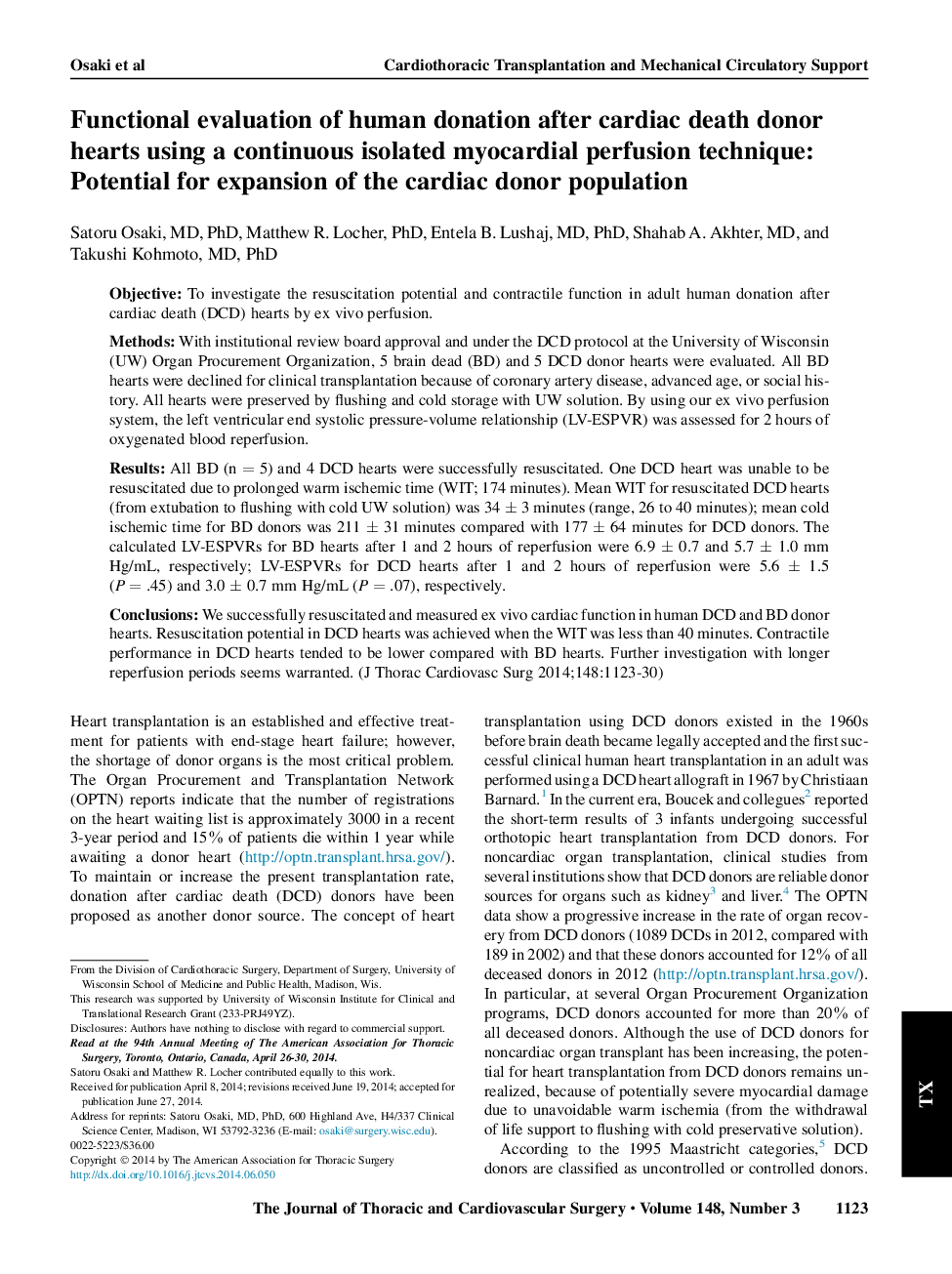| Article ID | Journal | Published Year | Pages | File Type |
|---|---|---|---|---|
| 5989391 | The Journal of Thoracic and Cardiovascular Surgery | 2014 | 8 Pages |
ObjectiveTo investigate the resuscitation potential and contractile function in adult human donation after cardiac death (DCD) hearts by ex vivo perfusion.MethodsWith institutional review board approval and under the DCD protocol at the University of Wisconsin (UW) Organ Procurement Organization, 5 brain dead (BD) and 5 DCD donor hearts were evaluated. All BD hearts were declined for clinical transplantation because of coronary artery disease, advanced age, or social history. All hearts were preserved by flushing and cold storage with UW solution. By using our ex vivo perfusion system, the left ventricular end systolic pressure-volume relationship (LV-ESPVR) was assessed for 2 hours of oxygenated blood reperfusion.ResultsAll BD (n = 5) and 4 DCD hearts were successfully resuscitated. One DCD heart was unable to be resuscitated due to prolonged warm ischemic time (WIT; 174 minutes). Mean WIT for resuscitated DCD hearts (from extubation to flushing with cold UW solution) was 34 ± 3 minutes (range, 26 to 40 minutes); mean cold ischemic time for BD donors was 211 ± 31 minutes compared with 177 ± 64 minutes for DCD donors. The calculated LV-ESPVRs for BD hearts after 1 and 2 hours of reperfusion were 6.9 ± 0.7 and 5.7 ± 1.0 mm Hg/mL, respectively; LV-ESPVRs for DCD hearts after 1 and 2 hours of reperfusion were 5.6 ± 1.5 (P = .45) and 3.0 ± 0.7 mm Hg/mL (P = .07), respectively.ConclusionsWe successfully resuscitated and measured ex vivo cardiac function in human DCD and BD donor hearts. Resuscitation potential in DCD hearts was achieved when the WIT was less than 40 minutes. Contractile performance in DCD hearts tended to be lower compared with BD hearts. Further investigation with longer reperfusion periods seems warranted.
